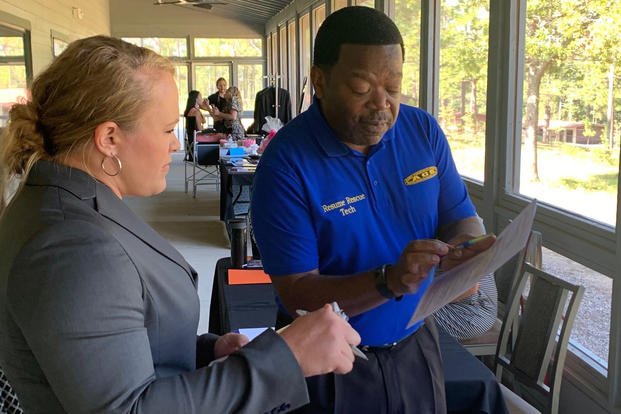When you're a transitioning service member or veteran and trying to write a resume, especially your first one, you'll face questions you typically won't find addressed in the current blizzard of resume books.
That doesn't mean your questions aren't valid; it simply means the resume experts often overlook them, because they generally target mid-career audiences.
As the MonsterTRAK career coach, I've seen many versions of the following resume-related questions. It's time for some answers.
1. Should My Resume Be One Page or Two?
If you read enough books or talk to enough people who "know" about resumes, you'll come across a rule stating your resume should be only one page long. It's time to let this myth go, along with the resume handcuffing it spawns.
It's great if you can do this. But if you end up leaving out so much good material that you destroy your interview chances, what good have you done?
Remember: A human will read your resume. Some readers demand your resume be one page. Others will read a two-pager without hesitation. You don't know who's who, but the point still remains: A one-page rule simply doesn't exist.
2. Should the Education Section Go First or Last?
In most cases, it makes sense to put the Education section at the beginning of your resume, since you're a college student or recent grad. But if you've got a lot of great internship, co-op or work experience closely related to your chosen field, position your Experience section ahead of Education.
Here's another resume area where there's no rule: Put it where it makes the most sense for you and your particular skills and experiences.
3. Should I Include My GPA on My Resume?
Yes, if it's above a 3.0 (on a 4.0 scale). If not, try to make it look better by highlighting your major GPA instead of your cumulative one or calculating your GPA for the last three or four semesters, for example.
4. Should I List My Current Address, Permanent Address or Both?
If in doubt, list both -- as long as you can actually be reached at both. If not, use the address where an employer will actually be able to reach you for the next few months.
5. What Can I Put on My Resume If I Don't Have Much Experience?
For starters, don't overlook or ignore the military skills you've gained. You've also gained valuable experience from:
- Your foreign-language study
- Technical training
- Your computer and internet use
- Soft skills, including leadership and teamwork
6. Should My Resume Include Only Paid Experience?
Employers are interested in your skills, not whether you've been paid to learn them. So don't hesitate to highlight nonpaying work and volunteer experiences if they've given you bragging rights.
7. Should I Include Pre-College Information on My Resume?
Generally, no. Employers aren't likely to care about it much. There are exceptions, of course. Suppose you won a national award in high school, or you accomplished something extraordinary. Then you should highlight it, especially if it's connected to your chosen field.
To learn more about how to develop a great resume, visit the Military.com Resume Center. And remember: Resume writing is much more art than science, so just as you would with an art project, express yourself the way that works best for you and the information you're trying to portray.
Want to Know More About the Military?
Be sure to get the latest news about the U.S. military, as well as critical info about how to join and all the benefits of service. Subscribe to Military.com and receive customized updates delivered straight to your inbox.







